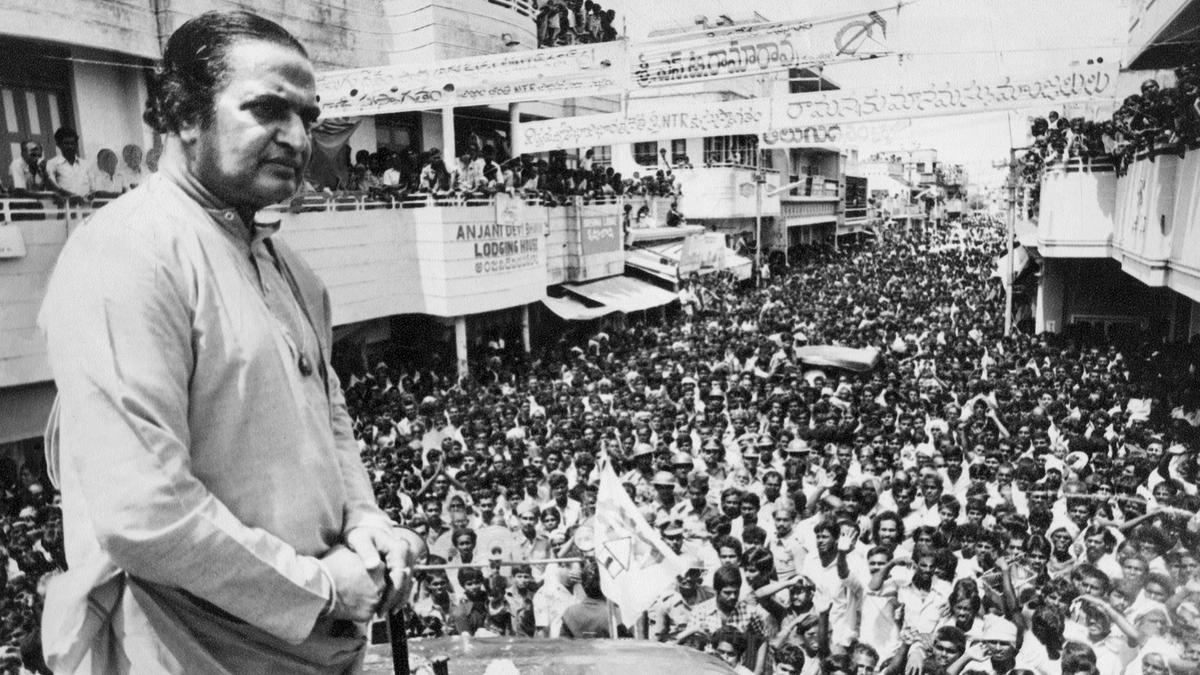
Elections that shaped India | The rise of the Telugu Desam Party Premium
The Hindu
In its series exploring the important elections in the past, The Hindu examined the Telugu Desam Party’s rise under N.T Rama Rao in 1982-83, and its effect on regional and national politics.
“Telugu Vaari Atma Gauravam” (self respect of the Telugu people) — this was the clarion call of the Telugu Desam Party, founded by beloved Telugu superstar Nandamuri Taraka Rama Rao in March 1982, purportedly to counter the self-respect of the Telugu people being “bartered away in the streets of Delhi,” in his words.
Within nine months of floating the party, NTR, as he is popularly known, went on to sweep the 1983 Assembly elections in the then undivided Andhra Pradesh, bringing to an end 27 years of rule by the Congress. On January 9, 1983, N.T Rama Rao took over as the first non-Congress Chief Minister of undivided Andhra Pradesh.
The debutant TDP won a massive 201 out of a total 294 seats, riding on the popular Telugu pride sentiment, while the Congress was reduced to just 60 seats from the 175 it had won in the 1978 elections.
This landslide victory was a pivotal moment in regional politics that saw a ripple effect make its way to the Centre.
The Congress under former Prime Minister Indira Gandhi was the dominant political party in Andhra Pradesh during the time, ruling virtually unopposed since the State’s formation in 1953. Its electoral clout in the State was evident from the results of the 1972 State Assembly elections: the party won more than 52% of the votes cast and 219 seats out of 287.
However, a decade later, in the run-up to the 1983 elections, victory didn’t seem guaranteed for the Congress. There was growing discontent among sections of the State’s populace and a feeling that there was too much interference from Delhi in the State’s administration.
The central plank of Ms. Gandhi’s campaign in Andhra Pradesh was against regionalism, concentrating on the benefit of stable governments at the Centre and the State. But this failed to strike a chord among the public. This was especially following a particularly tumultuous time in the State, with four Chief Ministers in as many years between 1978 and 1982.













